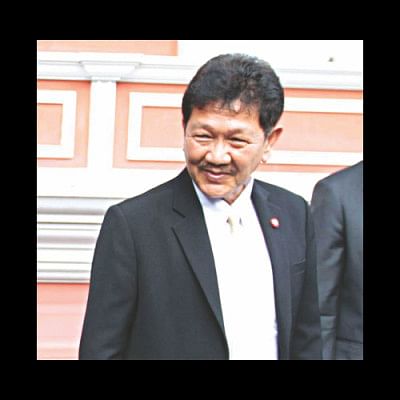Rohingya issue stands in way

Thailand, despite being at the core of the current boatpeople crisis, finds it difficult to discuss the issue with Myanmar which does not recognise Rohingyas as its citizens, said Thailand's security chief.
"We have talked with Bangladesh about Bangladeshi migrants but cannot raise the issue of Rohingya with Myanmar."
Secretary General Anusit Kunakorn of the National Security Council in an interview with The Nation newspaper said the Rohingya issue was complicated because of this.
He touched different aspects of the crisis that have been dogging the region in the recent years.
The UN and the international community must share the burden of countries in Southeast Asia to help end the boatpeople crisis, rather than shifting blame on any particular country, he said.
Thailand is home to about 120,000 asylum-seekers from Myanmar. They have lived in camps along the border with Myanmar since the mid-80's.
Tens of thousands of asylum seekers have settled in third countries over the past decade, while Bangkok is engaging Nay Pyi Taw for a programme to repatriate those still in the border camps.
But the job is not easy, Anusit said.
Thailand is only a transit country and "what we can do is provide food, water and other basic needs on a humanitarian basis for them," said Anusit.
According to a United Nations High Commissioner for Refugees (UNHCR) estimate, over 25,000 migrants have taken boat journeys from Bangladesh and Myanmar to other Southeast Asian countries in recent times.
Malaysia and Indonesia announced last week they would give them shelter for one year before trying to repatriate them.
The UNHCR called on countries in the region to help save 3,500 migrants believed to be still at sea. It is estimated that up to 2,000 people are still stranded on boats in the Bay of Bengal, and another 1,500 farther to the south in the Andaman Sea, the UN said on Saturday.
Thailand's military government has only said it would provide humanitarian assistance to the Rohingya and Bangladeshi migrants.
Thailand hopes to get a pathway to solve the problem when representatives of 17 countries and three international organisations gather in Bangkok on Friday.
"We will know how to handle this particular issue after the May 29 meeting, when the countries say how they will help," the security chief said.
Thailand has faced the problem of Rohingya migrants for a long time but the issue became a grave concern in early 2009 when the Navy towed their boats out to high seas. The issue flared again on May 1 after the remains of Rohingyas were found in a mass grave in Songkhla province near the southern border, an area criss-crossed with human-trafficking routes.
It is understood that the Thai government will not open any shelters for them, as it fears that the Rohingya issue will be like other cases in the past, with asylum seekers remaining in the country for years.
"Thailand is limited in its means as the country already hosts a significant number of refugees," Anusit said. "The crisis has occurred in the Bay of Bengal and requires international cooperation to address this issue."
Thai Prime Minister General Prayut Chan-o-cha has given a strict timeline of one month to deal with the issue.

 For all latest news, follow The Daily Star's Google News channel.
For all latest news, follow The Daily Star's Google News channel. 



Comments